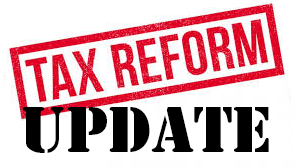
2025 Tax Update for Healthcare Travelers
Last Updated: November 12, 2025
For most healthcare travelers, the tax landscape in 2025 remains steady. The core financial advantages of travel work, especially tax-free stipends for housing, meals, and travel, are still intact. While the IRS continues to make small annual inflation adjustments, no major legislation has altered how travel pay is taxed or reported.
Standard Deduction and Take-Home Pay
Single travelers who do not itemize deductions in 2025 will see a modest increase in take-home pay due to higher standard deductions and inflation adjustments to tax brackets.
For tax year 2025 (returns filed in 2026):
-
Single or Married Filing Separately: $15,000
-
Married Filing Jointly: $30,000
-
Head of Household: $22,500
Personal exemptions remain suspended under the Tax Cuts and Jobs Act (TCJA) through at least 2025.
For most travelers, this increase translates to a small bump in take-home pay, usually less than $10 per week. It is not dramatic, but every bit helps offset rising costs of housing and travel.
Itemizers Still See Limitations
Travelers who itemize continue to face restrictions that have been in place since 2018. The following deductions remain unavailable for W-2 employees:
-
Mileage: No deduction for unreimbursed work mileage, including commutes from temporary housing to the facility.
-
Meals & Incidentals (M&IE): No deduction for the difference between agency-paid stipends and the IRS per diem rate.
-
Other Work Expenses: Costs for scrubs, CEUs, professional memberships (including PanTravelers), or state licenses are still not deductible.
These limits mean that most W-2 travelers will not benefit from itemizing unless they have significant mortgage interest, medical expenses, or other non-travel-related deductions.
What You Can Still Get
The good news is that tax-free stipends remain a cornerstone of traveler compensation.
If you maintain a legitimate tax home and meet IRS guidelines for being “away from home,” your housing, meal, and travel stipends are not considered taxable income. This remains the single biggest financial advantage of being a healthcare traveler.
Tip: Keep documentation for your permanent residence, housing leases, travel mileage, and assignments. The IRS is paying closer attention to tax-home claims, and your paperwork is your best defense.
W-2 vs. 1099: The Contractor Question
Some travelers still explore becoming 1099 independent contractors to claim business deductions, but this remains impractical for most.
Why:
-
Most staffing agencies do not offer 1099 contracts because of liability, workers’ compensation, and IRS compliance issues.
-
Many hospitals and Vendor Management Systems (VMS) prohibit independent contractor placements in their agreements.
-
Even when possible, the IRS considers most nurses and allied health professionals to be employees rather than independent businesses.
Independent contractors can deduct mileage, M&IE, and other expenses on Schedule C, but they must also pay self-employment tax and handle their own insurance and benefits.
The Section 199A (Qualified Business Income) deduction still exists, offering a 20 percent pass-through deduction for certain self-employed taxpayers. However, healthcare providers are often classified as a “specified service trade or business” (SSTB), which limits or eliminates this benefit at higher income levels.
Classification Controversy
There is an ongoing debate about whether a nurse working inside a hospital can ever truly qualify as an independent contractor under IRS rules. The IRS defines an independent contractor as someone for whom the payer controls only the result of the work, not what will be done or how it will be done.
In most hospital settings, nurses do not control their schedules, patient assignments, procedures, or how their work is performed. These are all directed by the facility or agency, which fits the IRS description of an employee, not a contractor.
Because of this, tax experts and legal advisors often argue that classifying hospital-based nurses as 1099 contractors does not meet IRS standards. Even when agencies attempt it, the arrangement may invite IRS scrutiny and reclassification.
Rare Exceptions
A small number of travelers successfully operate as 1099 contractors, usually those working through boutique agencies or contracting directly with facilities. These travelers may benefit from:
-
Deductions for mileage and M&IE on Schedule C
-
The Section 199A deduction in limited cases
-
Greater financial control and business flexibility
However, these arrangements come with added responsibilities, higher audit risk, and increased self-employment costs.
A few travelers have even formed their own staffing agencies to bypass the middleman, but this path is increasingly difficult because of VMS and MSP systems controlling access to facility contracts.
The Bottom Line
-
No major tax changes have affected healthcare traveler compensation in 2025.
-
Most of the itemized deductions lost in 2018 remain unavailable.
-
W-2 status continues to be the standard and most practical employment structure for travelers.
-
Tax-free stipends remain the most valuable financial advantage for travel nurses and allied professionals.
-
Maintaining a tax home and proper documentation is essential to preserve stipend eligibility.
-
IRS definitions of independent contractors make 1099 nursing arrangements extremely difficult to justify.
Looking Ahead
We will continue monitoring IRS updates and any congressional proposals that might affect traveler pay or classification.
For now, the financial advantage of being a traveler remains strong. Be sure to work with a tax professional who understands travel healthcare so you can stay compliant and make the most of your benefits.



